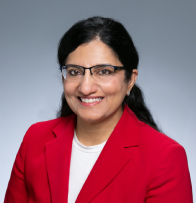
Can you please explain what cardio-oncology is?
Cardio-oncology is a growing subspecialty that focuses on the prevention, early detection and management of cardiovascular complications in patients with cancer. It plays a critical role in evaluating and optimizing the cardiovascular health of patients prior to, during and after cancer treatment.
At Northside Hospital, we launched our comprehensive Cardio-Oncology Program through close collaboration between the Northside Hospital Heart Institute and Northside Hospital Cancer Institute. Our goal is to provide integrated, patient-centered care by building a multidisciplinary team that includes cardiologists, oncologists, primary care providers, pharmacists and imaging specialists.
Our program uses evidence-based protocols that reflect the latest guidelines from the International Cardio-Oncology Society (IC-OS) and American College of Cardiology (ACC). It includes risk stratification tools, longitudinal cardiac imaging surveillance and survivorship pathways tailored to individual treatment regimens. Through our task force, we have also led initiatives to educate clinicians, improve early detection of cardiotoxicity and develop clinical workflows that address the complex needs of cardio-oncology patients.
What are some of the common cardiovascular side effects related to current cancer therapies?
Cardiovascular complications from cancer therapy can be both acute and chronic. These may include myocardial dysfunction and heart failure, coronary artery disease, arrhythmias (including atrial fibrillation and QT prolongation), valvular abnormalities, hypertension and pericardial effusion.
Newer targeted therapies and immunotherapies, while advancing cancer treatment, can also introduce risks such as myocarditis and vascular events. Our program emphasizes early recognition and intervention through advanced imaging, biomarkers and collaborative monitoring protocols.
Do certain treatment therapies or medications put a survivor more at risk for cardiovascular side effects?
Yes. Therapies such as anthracyclines (e.g., doxorubicin), HER2-targeted agents (e.g., trastuzumab), radiation to the chest and certain tyrosine kinase inhibitors significantly increase the risk for cardiotoxicity.
Emerging data show that up to one-third of cancer survivors ultimately succumb to cardiovascular disease rather than cancer itself. As a result, we advocate for lifelong surveillance and individualized cardioprotective strategies, especially for high-risk patients.
At Northside, we utilize risk stratification models and develop individualized care plans that include pre-treatment evaluation, on-treatment cardiac monitoring and post-treatment survivorship care. Our focus is not just on preventing cardiovascular disease but also on improving long-term quality of life for survivors.
How can survivors optimize their cardiac health?
Cancer survivors should adopt a proactive approach to cardiovascular health. This includes:
- Maintaining a heart-healthy lifestyle (regular exercise, balanced diet, avoiding tobacco and excessive alcohol)
- Managing traditional risk factors such as hypertension, diabetes and hyperlipidemia
- Engaging in stress management and mental health support
- Following a structured surveillance plan, especially if they received cardiotoxic agents
Working closely with a cardio-oncologist allows survivors to monitor cardiac function regularly and intervene early. At Northside, we offer survivorship visits that provide survivors with tailored care, education and long-term monitoring to help reduce their cardiovascular risk.
If you or someone you know is undergoing cancer treatment or is a cancer survivor with heart concerns, our Cardio-Oncology team is here to help. Contact the Northside Hospital Heart Institute for more information on how to be evaluated or referred to the program.
Learn more about the Cardio-Oncology Program at Northside Hospital.

